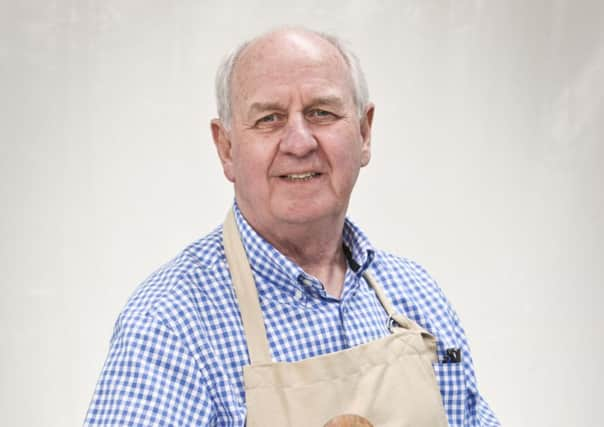Baking passion goes stale ahead of Bake Off return


As the British economy has made a slow yet steady return to health, Britons have lost their appetite for home baking, according to new research.
The boom in would-be pâtissiers in kitchens up and down the country was sparked by the rising cost of living, as people struggled to meet ever-increasing bills with stagnant wages.
Advertisement
Hide AdWith only a few affordable ingredients, increasing numbers of households turned to making their own sweet treats, inspired by shows such as the BBC’s The Great British Bake Off.
But with the hit series set to return to screens this evening, even making the switch from BBC2 to a primetime slot on BBC1, it seems the mixing bowls are quietly being put in the cupboards.
As 12 new contestants prepare to take up the programme’s challenges, a new report shows Britain’s amateur bakers are being turned off from whipping up a Black Forest gateau by the improving economy and renewed debate on the health damage posed by sugar.
Last year, more than five out of six adults (85 per cent) baked at home, but this year the figure is forecast to fall to 77 per cent, according to research by consumer analysts Mintel.
While four out of five baked from scratch in 2013, the figure is expected to fall to 72 per cent this year.
The home-baking market, powered by Bake Off – which has made household names out of Mary Berry and Paul Hollywood – rose in value from £1.41 billion in 2009 to £1.79bn in 2013, but now sales are forecast to drop by 2 per cent to £1.76bn this year.
Advertisement
Hide AdMintel’s senior food analyst Emma Clifford said: “Consumers’ tendency to spend more time in the home to save money during and after the recession provided an ideal climate for home baking to thrive in.
“Nowadays there are a vast number of sources for bakers to get inspiration from – with The Great British Bake Off proving to be a runaway hit.
Advertisement
Hide Ad“However, with the economy rebounding, consumer confidence improving and people more willing to go out and have fun, home baking faces intensifying competition for people’s free time.”
Although the value of the baking market is falling overall, it seems people are still prepared to splash out on special occasions.
This year’s sales of cake coverings, decorations, culinary aids and cooking chocolate are expected to be up 80 per cent on 2009 with sales growing from £98 million to an estimated £176m.
However, sales of ready-made baking mixes are predicted to drop from £59m in 2012 to an estimated £52m in 2014, the research suggested.
Standard cakes, such as the Victoria sponge, still reign supreme to bake from scratch with two-thirds of home bakers having a go, followed by cupcakes (57 per cent) and pancakes, favoured by more than half of people.
Just under half bake biscuits while a third make sweet pies or tarts or their own bread.
Advertisement
Hide AdHealth concerns, too, are having a detrimental effect on the market.
More than a third of home bakers are limiting how often they bake sweet goods for health reasons while 31 per cent are seeking out healthier recipes, according to the Mintel report. Of those who bake from scratch, one in four chooses products low in sugar or sugar-free or low in fat or fat-free.
Advertisement
Hide AdMs Clifford added: “While concerns about health are nothing new, the escalating debate surrounding the dangers of sugar in 2014 is likely to have been particularly damaging to the home-baking market.
“Home-baking brands can do more to ensure they appeal to health-conscious consumers, emphasising that there are many ways to experiment with healthier baking.”
The study also found that a third of women and just over a quarter of men bake from scratch at least once a week, but men are more likely to seek out pre-mixed ingredients than women.
Those who love to bake represent a younger demographic, meanwhile.
Britons aged 25 to 34 bake at home the most with 39 per cent baking from scratch at least once a week, while five out of six homes with children aged six to 16 do so.